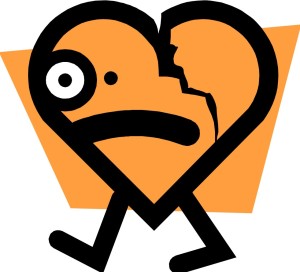 Over the years I have had people come into my office saying they are a relationship masochist. Although I do not use this label and it is not an official clinical diagnosis, people use this term to describe their pattern of getting into one unhealthy relationship after another.
Over the years I have had people come into my office saying they are a relationship masochist. Although I do not use this label and it is not an official clinical diagnosis, people use this term to describe their pattern of getting into one unhealthy relationship after another.
Our work in therapy usually focuses on education and change. The client learns what a healthy relationship actually “looks like”, why they do what they do, and how to make changes within themselves so that they are able to form healthier relationships with others.
Ashley Papa from FOX News Magazine recently interviewed me on this topic. I have included some of our question and answer session below. Ashley quoted me along with several other experts in her article called Are You a Relationship Masochist? Please check out Ashley’s article by clicking on this blue link. Thank you Ashley for inviting me to contribute to your insightful article.
Our Q&A Session
Q: There may not be a scientific name for it, but if you could, how would you describe someone who is a ‘relationship masochist’?
A: Although the term ‘relationship masochist’ is not a scientific name or a clinical diagnosis, people often use the term to describe a person who has a pattern of choosing partners who abuse or mistreat them. The term is often used to describe a person who finds themselves in one bad relationship after another.
Q: What do you think causes people to drift towards bad relationships?
A: There are many different reasons why people find themselves in one bad relationship after another.
They may have low self-esteem. Because they do not love and respect themselves, they can’t imagine anyone else loving and respecting them. They tolerate poor treatment because they do not feel they deserve better.
They have been conditioned to accept mistreatment due to being physically, emotionally, or sexually abused during childhood. People tend to stay with the familiar. Being mistreated, no matter how painful the experience, fits into their comfort zone. It is what they know. Being treated with respect is not familiar to them and actually feels uncomfortable.
They fear intimacy. They unconsciously find people who are unavailable or who push them away because emotional closeness and vulnerability causes them great anxiety. Maybe they were hurt in close relationships in the past and now protect themselves by choosing people who don’t have the ability to establish long-lasting healthy relationships. Deep down they may fear what they want the most- closeness. The defenses that once may have kept them safe, now harm them.
They may seek a challenge, unconsciously thinking that if they conquer the challenge and get the person to love them, they can fix the past and finally feel whole.
Q: Do you think people who find themselves in bad relationship after bad relationship are subconsciously choosing people who don’t make good partners or are they subconsciously making their relationships bad?
A: There are many different reasons why people end up in bad relationship after bad relationship. Sometimes they unconsciously choose people who don’t make good partners and other times they unconsciously sabotage their relationships. They may do either of these things because they fear intimacy, they fear the unknown, they don’t think they deserve better, they believe they should be punished, or they are used to intense relationships full of conflict and drama. Sometimes there is nothing deep about it, and they just haven’t learned the skills necessary to have a healthy relationship.
Q: Do people subconsciously like the pain of being in a bad relationship?
A: Most people don’t want to feel the emotional pain that comes with a bad relationship. They want to be happy and want to be in a good relationship, but just don’t know how to get there. They may settle for a bad relationship out of fear. They may fear being alone. They may fear intimacy. They may fear the unknown. They may fear no one else will want them.
Q: What advice would you give to someone who appears to be entering bad relationships repeatedly? For example, would you tell them to go for the complete opposite person they would normally go for?
A: I would recommend that they really work on themselves before entering into another romantic relationship. Their relationships are only going to be as healthy as they are. They may think that they are emotionally healthy, however, emotionally healthy people usually find emotionally healthy people and the two create emotionally healthy relationships. Someone who has a pattern of getting into unhealthy relationship after unhealthy relationship needs to get healthy themselves. It takes a lot of self-awareness and education to rewire patterns and turn interpersonal relationships around. Read books and blogs about healthy relationships, go to workshops, seek therapy. One of my favorite quotes is “If you always do what you have always done, you always get what you have always gotten.” If you have a pattern of unhealthy relationships, it is time to look within and make a change.
Kristin Barton Cuthriell is a licensed clinical social worker and the author of The Snowball Effect: How to Build Positive Momentum in Your Life.
Available now on Amazon and Barnes and Noble.


Leave a Reply